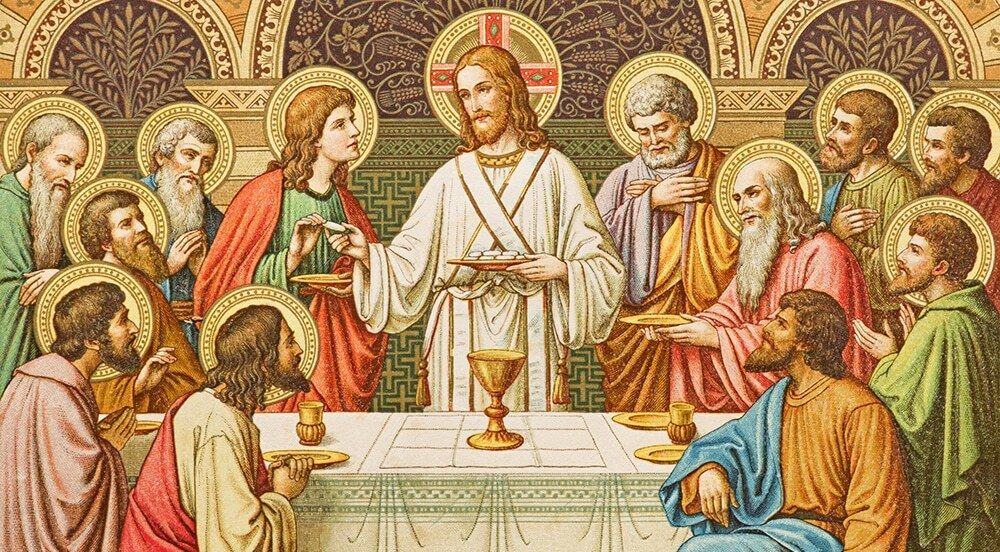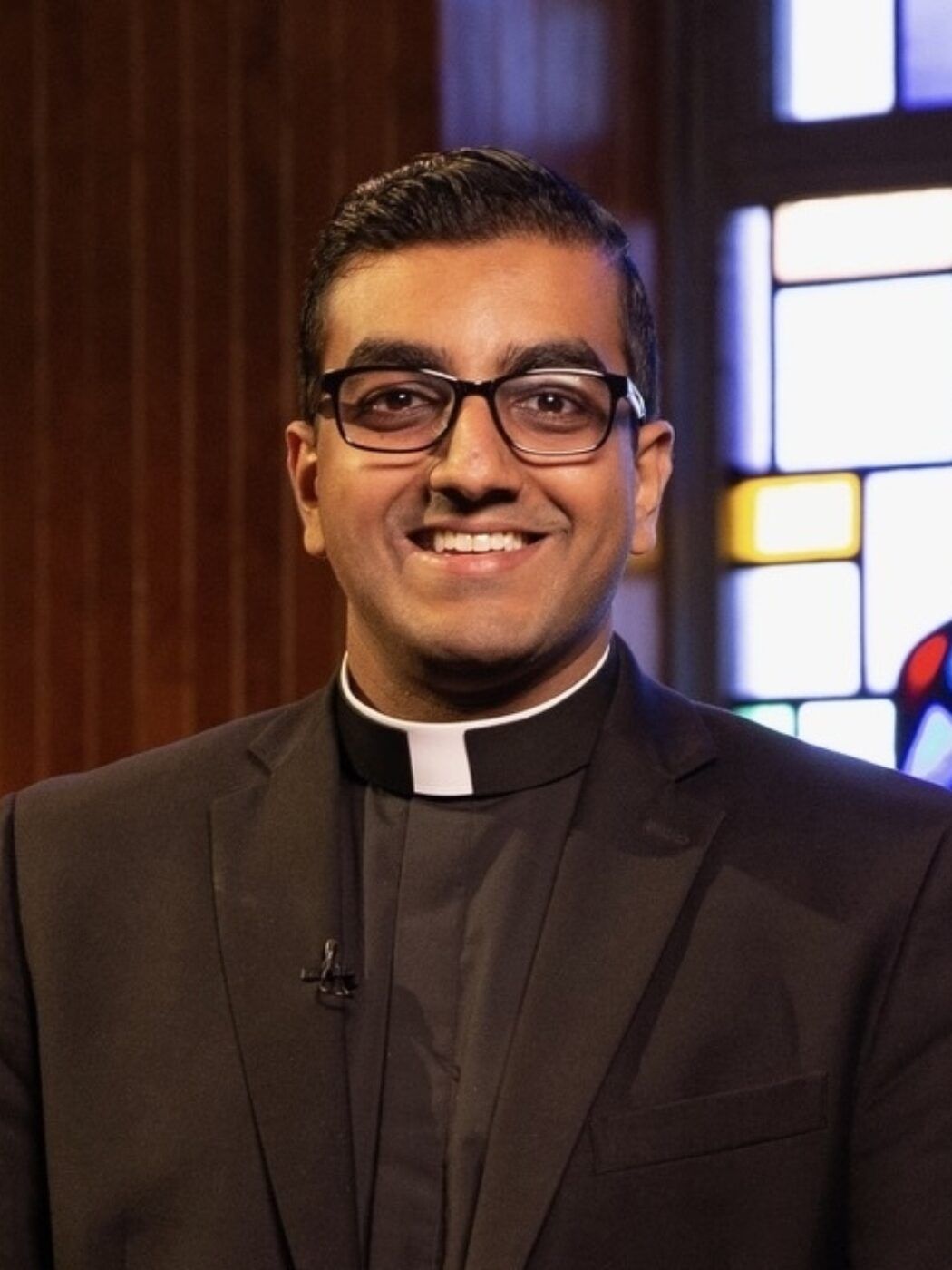Having just been present in the great mystery and miracle of the Eucharist, wherein Jesus makes Himself truly present to us, we now approach Jesus in a new way. In the Liturgy of the Eucharist, we are brought to the one sacrifice of Christ on Calvary and celebrate the entire event - His passion, death, and resurrection. But, God does not want us to just be mere spectators to the mystery of our salvation. He wants us to take part in it and share in it.
After the Eucharistic Prayer, the faithful are invited to pray the very prayer that Jesus taught us, the Our Father. While this may be a very familiar prayer to many people, it holds great meaning in the context of the Mass. The Our Father prayer affirms everything we celebrate in the Mass - turning to God as Father, praising His name, asking His will be done, asking for our daily bread, asking forgiveness for our sins, and asking us to be freed from temptation. These are all movements and prayers that are found throughout the Mass. With the Eucharist now in front of us on the altar, we can reaffirm these aspects of prayer in a new way.
After the Our Father, the priest directs our attention towards the peace that Jesus offers, especially through the Eucharist. Much of the language in this section deals with peace - something we are all seeking in our lives to some degree. In an era where mindfulness and inner harmony are popular terms and things that people strive for, it is very interesting to note that these are not new or novel ideas to our faith. Rather than a worldly sense of mindfulness or tranquility, the peace that Jesus offers us is something that cannot be found anywhere else. Peace is not just the absence of conflict, but rather a place of security in which we can thrive and flourish. This security, when found in Jesus Himself, is one in which the almighty God makes His infinite love known to us. God does not love us generically, but He actually likes us and delights in us. He wants us to experience true happiness - not what we might think happiness looks like, but true happiness that only the author of our hearts can give. And it is found right here in the Eucharist. Jesus, God Himself, is about to dwell in us. The King of the Universe chooses to make our lowly selves His dwelling place. And when we come in contact with the King of the Universe, we become changed for the better. He gives us His peace.
As we are given God’s peace, a share in His very life, we are invited to then turn that peace toward our neighbor. The Eucharist, the Body and Blood of Christ, not only gives us peace individually, but it unites us all as one Body, the Church. So, for there to be true peace, this peace and goodwill must be present among each other. If we can forgive the faults of our neighbor, if we can forgive injuries we have received, if we can be repentant in how we have harmed others, Jesus can bring His peace and healing to His Body, the Church, and to us individually.
Then, we proclaim the words “Lamb of God, you take away the sins of the world. Have mercy on us.” We say this three times, with the final words of the third time changing to “Grant us peace.” This threefold asking for mercy and peace is a parallel to the threefold asking for mercy at the beginning of Mass. It is never too much to ask God for His mercy! One gathered us together as an assembly, the second gathers us together as a Church united in the Eucharist about to receive this very Eucharist.
By asking for mercy, we call to mind the times in which we have not followed God’s path and in which we have sinned. Sin prevents us from authentically receiving the Eucharist. When we sin, we actively reject God, but by going before Him in the Eucharist, we are asking for Him. It would be disingenuous to receive the Eucharist when we are in a state of sin because while our mouth might be saying “yes,” our heart is saying “no” because it is weighed down by sin. This asking for God’s mercy removes any venial sin from our hearts. If there is mortal sin in our hearts, it is important that we go to the sacrament of Confession before receiving the Eucharist so that we can be authentic before God and receive Him genuinely.

Now, we are ready to receive Jesus, the Lamb of God who takes away the sins of the world. Blessed are those who are called to the supper of the lamb. Who has been called? We have, by our baptism. Jesus is inviting us to receive Him. Think about it - we are eating God. Yet, it is not gross or grotesque, because this is offered to us under the appearance of bread and wine. It is all part of the grand mystery that is so central to our faith. Amen - I believe!
These precious moments when we have Jesus inside of us - we become tabernacles. This is a perfect time to just talk to Him. He is literally inside of us at this point. What do you want to ask Him? How can we invite Him to transform our lives? He is God - He can do it and wants to do it. My encouragement is to really take advantage of this time where it is just you and Jesus. Yes, there can be legitimate things that draw our attention, such as children. But, who better to take care of these things than Our Lord? If we can truly use this time with Jesus inside of us well, in quiet and contemplative prayer, we can find a truly deep and intimate union with Jesus. There, we can find our peace.


